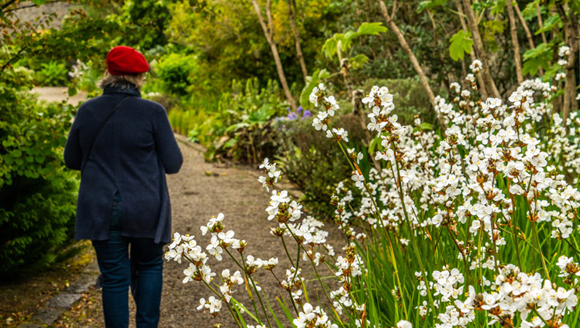Final call for National Heritage Week projects ahead of August 4th deadline
Members of the public are being invited to develop and submit ideas and projects for Heritage Week 2020.

Expressions of interest and project ideas should be submitted to HeritageWeek.ie before August 4th, for completion in time for National Heritage Week, which runs from August 15th to 23rd this year. Completed projects will be showcased online on HeritageWeek.ie
Due to Covid-19-related restrictions, this year, rather than inviting communities to host Heritage Week events, the Heritage Council is inviting communities around the country to undertake projects that explore a topic associated with this year’s theme – ‘Heritage and Education: Learning from our Heritage’.
The organisers advise that the results of each project should be presented in a format that can be shared widely. Participants can showcase their project, research, knowledge, experience or learning using platforms such as online talks or exhibitions, videos, podcasts, slideshow presentations or blogs, media coverage, a dedicated website or moderated social media account, or by means of small, restricted social gatherings, which comply with official public health advice. All projects submitted will be considered for a Heritage Week Award.
Mayor of Clare, Cllr Mary Howard, is delighted to support this year’s alternative version of National Heritage Week, which is always highly anticipated for its showcasing of Clare’s diverse heritage.
Cllr Howard said: “This year, I hope that the Clare community groups and heritage organisations get involved, as well as those who are new to Ireland’s varied heritage.”
Under this year’s theme of ‘Heritage and Education’, three broad sub-themes can be considered for projects.
Heritage on your doorstep: Projects may involve local research or knowledge about a monument or landmark, a building or local wildlife or may explore the origins of local customs, stories or traditions, for example.
Relearning skills from our heritage: Projects could explore forgotten or overlooked skills with a view to sharing them among younger generations; document crafts, skills or trades that one’s community was previously well-known for; investigate traditional remedies unique to a locality which were used to treat common aches and pains, and record the stories of individuals who remember such remedies; or research traditional food preparation or preservation methods throughout the ages.
The heritage of education: Projects might explore the history of an old school which has served many generations; better understand the role of a local hedge school; delve into the history of a monastic settlement; or interrogate how the experience of going to school has evolved over time.
In addition to developing new research, projects could also revisit or build on a heritage project which may already have been started at an individual, family or community level. In this instance, the National Heritage Week project could involve showcasing previous Heritage Week memories or events or research already done on a monument, a waterway, or a skill or tradition in the community, and finding new ways to grow awareness of it. The Heritage Council has developed a suite of resources and guidelines to support projects, which is available on HeritageWeek.ie
Congella McGuire, Heritage Officer, Clare County Council, said: “This year, perhaps more than any other year, National Heritage Week offers a moment for community engagement and social cohesion. Heritage – in all its forms – helps us to connect with our past, build resilience and enhance our health and wellbeing. I encourage everyone with an interest, enthusiasm or expertise in any facet of our rich heritage to consider putting together and submitting a project for National Heritage Week, and sharing it with the wider community.”
For more information, visit www.heritageweek.ie
Page last reviewed: 27/07/20
Content managed by: Planning Department
Back to topThis is just for feedback on our web site, not comments or questions about our services.
To tell us about anything else, go to our contact us pages.
